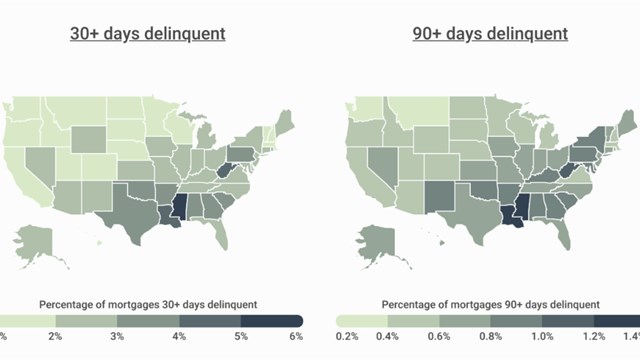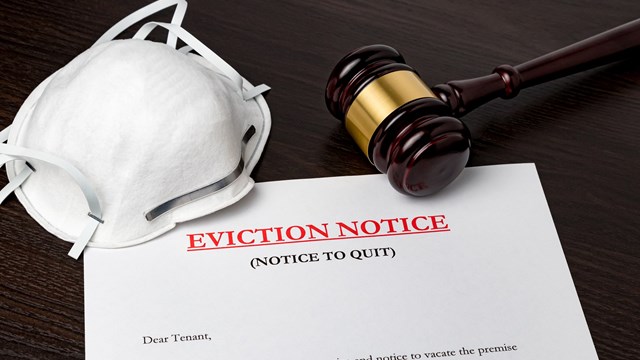While many condominium associations and co-op corporations hire professional property managers or management firms to handle the routine (and not-so-routine) tasks involved in running a multifamily building or HOA, a significant number take the opposite route, eschewing formal management and running their properties themselves. While most of these self-managed communities tend to be on the smaller side, self-management can be successful at any size, from a handful of units to hundreds.
Self-management involves numerous skills, however; everything from accounting to minor home repairs may need to be handled directly by the board, rather than being delegated by a manager or firm. Obviously, anyone with a plumbing problem can call a plumber; you don’t have to be a professional manager to intervene when a leak rears its head. But that said, the most successful self-managed properties are those that do have a range of practical skills distributed between owners, and a positive, community-oriented view from members. It’s a ‘pitch-in’ sort of atmosphere, and it’s not for everyone.
The arrival of COVID-19 has had major implications for all properties and their management of course, but the pandemic-related restrictions on close personal contact has had a particularly personal effect on smaller, self-managed communities. CooperatorNews spoke with several self-managed community leaders to understand how the global health crisis has changed the way they live, and how they manage themselves.
A Condo Grows in Brooklyn
Benjamin Weinstein is the vice president of a 10-unit condominium building located on Lorimer Street in the Williamsburg section of Brooklyn. The five-story elevator property was built in 2018 and is 100 percent sold.
Weinstein explains that when the association was originally formed, they had outside management. However, with minimal reserves and residents and board both very conscious of spending and keeping an eye on money, the community reconsidered their situation. “Having off-site management was expensive,” says Weinstein, “and we weren’t getting the quality and attention we felt we paid for. We had the experience we needed in the building; one owner was a real estate guy, another a financial consultant. We felt confident that they could cover the basics. Two members are compensated with forgiveness of some common charges. Economically and in terms of skills, it made sense for us. We started to self-manage a year ago, and it’s made life easier in many respects. We can deal with everything right away, in real time, without waiting for the manager to respond. It didn’t make sense to continue outsourcing the management function—so we eliminated the middleman.”
The association had an issue a month ago with the building’s old-style intercom system. They switched to Carson, a company that specializes in providing services to small, non-staffed buildings. “That overhaul was seamless,” says Weinstein, “because we dealt with them directly—no middle-man in the form of a manager. Nothing was lost in communication or translation.”
In terms of COVID-19 and how it’s affected their property and its management, Weinstein says, “We’ve had to make some adjustments. There’s more foot traffic, as everyone is home and everything is getting delivered, so we’re getting the building cleaned twice as much as before. We also are seeing more repairs resulting from more wear-and-tear. Early on we had issues with members not wearing masks or sanitizing properly, but we got it under control quickly and there haven’t been any issues since. In terms of payments and collections, everything was done online remotely even before the pandemic, so that hasn’t changed. Seventy-five percent of our members pay via direct payment online, and 25% slip a check under the treasurer’s door. He makes deposits and payments online, through his phone. There isn’t any physical component to our cash flow items at all.” Weinstein says the board does all their meetings on the Zoom video conferencing platform.
New England Strong
High View condos, located on Cape Cod in Sandwich, Massachusetts, is a 96-unit condominium community. The units are located in four three-level garden apartment style buildings that were constructed in phases between 1974 and 1982. The property is not age-restricted, and features a clubhouse.
Ursula Price is High View’s treasurer, and has served as such since 1993. She says that when the property converted to condominium ownership, it had a contracted management company. The association changed companies several times, but the residents (several of whom were professionals in architecture, engineering, or real estate themselves) were unhappy with the management companies—mostly because of deferred maintenance. Residents with relevant, applicable experience took over the board and ended the management relationship.
Since then, says Price, “Self-management has served us well. The dynamic of the property has changed. With the pandemic, people are home much more, and they notice things” like maintenance projects left too long without being addressed. “This has caused some conflict. Younger owners want more work done to improve the look of the property.”
For example, Price continues, “There’s been an issue with landscaping—some contention between older and younger residents. We have 12 acres—but our landscaper hasn’t had the staff needed to do the work, and the older people don’t want to spend the money.” That said, Price adds that they haven’t had any other vendor problems during the pandemic. All their vendors are family-operated businesses, and there was no interruption in services this past spring or summer. Neighbors have also stepped up to help neighbors—especially the elderly —and even when some conflict arose over younger community members wanting the association’s indoor pool open, the issue was eventually resolved.
The board abided by the governor’s mandates and those of the local Board of Health. Maintenance on the pool had been five days a week before, but was expanded to daily cleaning and sanitization, including the clubhouse. The association’s attorney drafted indemnification forms, and the board required waivers from pool users. The Sandwich Board of Health inspected the pool and clubhouse, and initially advised against opening it for use—but the board went back to the drawing board and was eventually able to map out protocols that satisfied the health inspectors that the amenity could be opened with minimal risk. The pool has been open since September, and according to Price, “Everyone wears a mask, and it’s never an issue.”
Midwestern Practical
Jose Rodriguez is the president of a three-story, 26-unit walk-up condominium association at 1618 West Wallen Avenue in Chicago. The building also features a courtyard and garden, and became a condominium in 2006.
“It’s gone pretty smoothly,” says Rodriquez of the community’s response to and management of the pandemic. “The most difficult part was figuring out what the guidelines were for prevention of spread, and compliance with city and state rules. What the governor and mayor have said are often different; for example, right now we are in lockdown in Chicago, but nearby suburbs are open.”
Rodriguez goes on to say that “the pandemic changed some of the things we do concerning cleaning of common areas. We had to hire someone who could do COVID cleaning. They come twice a week to do the stairwells and sanitize, which is an added expense. We did it ourselves before the pandemic on a volunteer basis, but now we’ve hired someone, to protect owners and incur less liability for the association. The decision was based on our attorney’s advice, and the community as a whole taking a decision together.
“We have both back and front stairs,” Rodriguez continues, “so [residents] rarely encounter each other on the stairs, but masks are required in the common areas, and signs are posted everywhere. In the courtyard, the city permitted 50 people or less, but people don’t really congregate there anyway—usually just a few people, or the volunteer gardener.”
At one point, they considered hiring a full-time manager as a result of the pandemic, but ultimately decided it was just too expensive. Also, the board was concerned that if people lost their jobs and couldn’t pay their monthly common charges, the association would have even less money to spare. So far, self-management has proven the right move for this particular community.
Shifting to Off-Site Management
Not every community is ready—or able —to go it alone, however. Stuart Halper, vice president of New York-based Impact Management, specializes in small to mid-sized co-op and condominium properties, and says he’s seen some self-managed properties shift to off-site management since the pandemic began. “We actually have picked up a significant number of clients in the last seven months,” he says. “And many of them are small properties coming off of self-management. However—could I say that it’s because of COVID-19 that they’ve turned to [professional] management? I don’t really know the answer to that.”
However, Halper goes on to say that he believes one particular reason they have seen an increase in new clients during the pandemic is that “We remained open throughout the pandemic. We never shut down, nor did we really work fully remotely. I do believe that has made a significant difference when we’ve interviewed with a lot of the smaller properties. We’ve found that many companies—especially the smaller ones—were working remotely and continue to work remotely, and some of their clients have not been satisfied with their performance.”
The COVID-19 pandemic has certainly wreaked havoc for properties large and small, professionally managed and self-managed alike. At the end of the day, the continued viability of your particular management arrangement lies more with the individuals in your community and their willingness to adjust to a frequently-changing landscape. If that adjustment is too difficult, professional management is just a phone call away.
AJ Sidransky is a staff writer/reporter for CooperatorNews, and a published novelist.










2 Comments
Leave a Comment